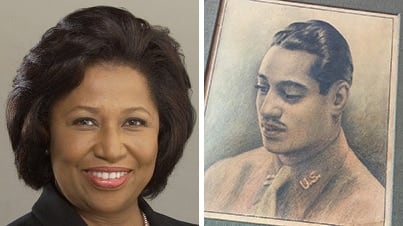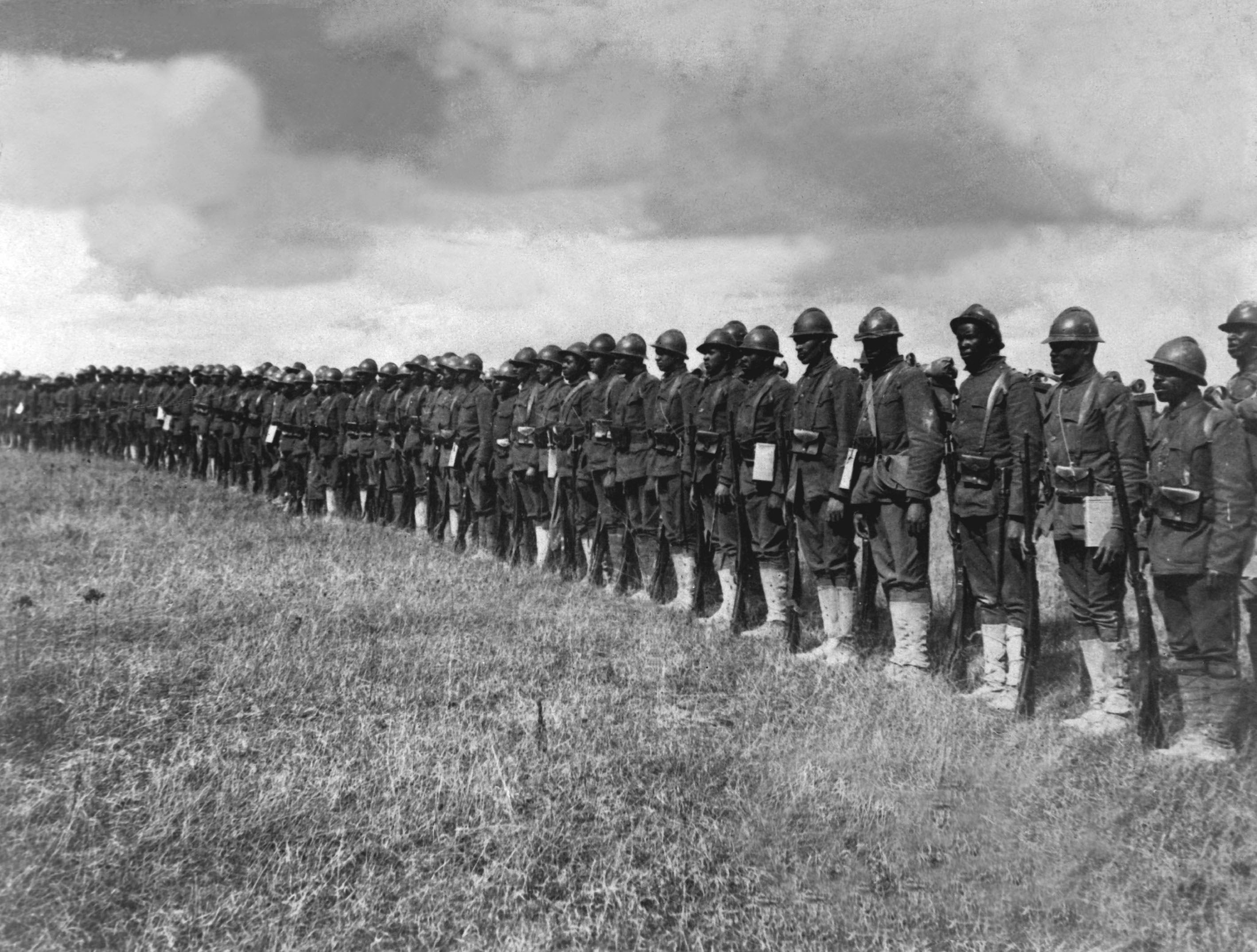Editor's note: The following is an opinion piece. The writer is not employed by Military Times. The views expressed here are her own and do not necessarily represent those of Military Times or its editorial staff.
It is early fall in 1918. Imagine being an American service member crouched down in the shrouded mists of a northeastern French valley, deep in the Argonne Forest.
German gunfire erupts as mortar rounds land nearby. You inch forward toward the enemy with soldiers from France and Belgium on either side of you. The brutal fighting would last nearly six weeks, until an Armistice was reached between Allied Forces and Germany on Nov. 11, 1918.
Five million Americans served their country in uniform during World War I, including 2 million deployed overseas. Nearly 117,000 Americans would make the ultimate sacrifice in a battle that would change the political, global, and social order of the U.S. and its allies – reasons why this war shouldn't become a forgotten one.
More than 350,000 African-Americans served during World War I. Overcoming racial hostilities, these brave men demonstrated through their service, love of country, patriotism and the importance of equality. The paradox for African-Americans fighting on the front lines in France was clear; they defended America's freedoms abroad while being denied those rights at home.
Although the Civil War ended 50 years before World War I began, racial discrimination was common throughout most of America. Jim Crow laws enforced a culture of segregation. African-Americans faced prejudice from their white counterparts in the service and in civilian communities near stateside military bases.
Despite these hardships, African-Americans served with honor and earned respect from American troops, Allied service members, and eventually the American public. Cpl. Freddie Stowers of South Carolina, attached to the segregated 371st Infantry Regiment, was killed after bravely leading American soldiers against entrenched German forces during a battle in the Ardennes Forest in September 1918. Sgt. Henry Johnson of North Carolina, assigned to the all-black 369th Army Infantry Regiment, engaged in hand-to-hand combat with German forces in the Argonne Forest during a May 1918 battle and saved the life of a fellow soldier. Both men were awarded the Medal of Honor more than 70 years after their deaths.

Carol Moseley Braun and her grandfather, World War I veteran Thomas Davie.
Photo Credit: Courtesy photos
My own grandfather, Thomas Davie, attached to the Army's 10th Calvary Regiment, famously known as the "Buffalo Soldiers," was posthumously awarded a U.S. Victory Medal and fought in the battle at Meuse-Argonne. His cousin, who volunteered at the same time, was not so fortunate; his name is memorialized on a statute in Chicago's Bronzeville neighborhood.
The 369th, known as the "Harlem Hellfighters," gained renown for their fierce fighting and dedicated patriotism. The unit never had a member taken as a prisoner, nor did it lose a foot of ground it defended, while suffering 1,500 casualties. More than 100 men received awards for valor.
The 369th’s regiment band, led by director James Reese Europe, boosted morale and played before thousands of Americans and Europeans, making jazz a part of the mainstream music scene on both continents.
America was forever changed after the war ended. Women earned the right to vote. Class barriers began to fall. While prejudice against African-Americans still existed, economic opportunities began to expand. After decades of institutionalized discrimination, African-Americans finally had their constitutional rights recognized by historic Supreme Court decisions in the 1950s, and Congress passed new civil rights laws in recognition of their citizenship.
For many African-Americans, the roots of the civil rights movement that swept America in the 1960s were planted through the heroic service of African-Americans 50 years earlier on the front lines of World War I. Their sacrifices and the respect they earned as soldiers changed the perception the American public had of the people of African ancestry. While it is common today to see African-Americans achieve political, military, entertainment and athletic success, these victories were forged and made possible by incredible sacrifices made decades ago.
There is an effort underway to create a National World War I Memorial in Washington, D.C. I give this effort my full support. You should, too.
Building a such a memorial in our nation's capital allows us to recognize the millions of American men and women – of different backgrounds and faiths – who served our nation during a time of crisis and set an example of selfless service for future generations to follow. It will be a beacon of hope for us all.
Carol Moseley Braun is a special adviser to the U.S. World War I Centennial Commission. Previously, she served as a U.S. senator representing the state of Illinois and as an ambassador to New Zealand. To learn more about the National World War I Memorial, visit the Centennial Commission's website.





